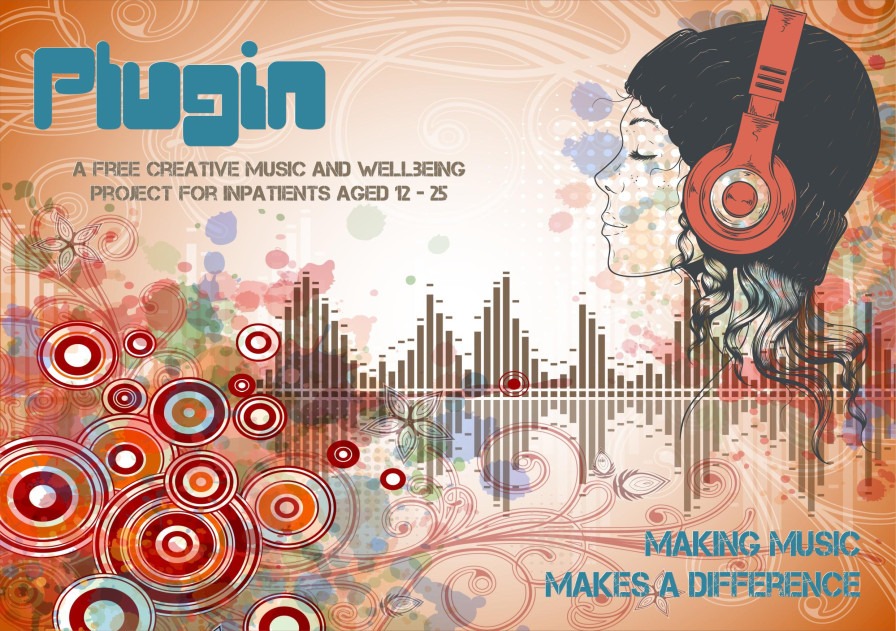The positive impact music making has on young people in inpatient settings by Holly Kehoe-Kingsley (Lead Music Leader on Quench Arts’ Plugin project)

This year was my first year working on the Plugin project as a lead artist and, during this time, I’ve seen first-hand the positive impact and growth music making can have on a young person especially in inpatient settings. Myself and the young music leader on the project worked with a wide range of young people across two wards at Birmingham Children’s Hospital’s Parkview Clinic and our aim was to not only help them to create music that they were happy and proud of, but to also help them to feel more confident as people in a comfortable environment.
To achieve this aim, we started off by getting to know the young people and expressing an interest in their music tastes and them as people. From there, we’d ask if they were interested in writing their own music, playing an instrument or lyric writing and singing to help the young people to set goals for themselves. These introduction sessions were crucial for creating trust and rapport between us and the young people as well as creating a safe space where they felt comfortable trying new things and sharing their opinions. After an introduction session, we spent a lot of time listening to music that the young people were currently enjoying as well as seeing if, between us all, we could cover the tracks in a fun way. This was a great way of showing the young people that whatever they wanted to learn or play in these sessions could be achieved and helped them to think outside the box when it came to music making. Once the young people felt comfortable with playing/singing covers, they then started to use these covers as inspiration for their own original songs and began the process of writing and recording their own music.
On one of the wards, there was a young person who at first only felt comfortable communicating with us through pops and clicks but seemed quite confident when singing along to songs on YouTube on her phone. We supported this young person by playing along to the songs she was singing and applauding and praising her after each performance. This helped her feel more comfortable having us in the room as well as improving her confidence when performing in front of others. After a few weeks of doing this, the young person seemed to enjoy having us accompany her and started asking us to play songs for her to sing along to instead of playing the songs off her phone. The young person saw one week that we’d set up a condenser microphone for another young person to use but asked if she could sing her covers on it and record them. We encouraged this and, over time, this led to the young person wanting to record her own original song. As the young person became more confident each week, she stopped using clicks and pops completely and started to chat to us in full sentences. By the end of the project, the young person felt confident enough to write her own lyrics, record her own vocals and other instrumental ideas into the track. She was also able to share her musical opinions and the reasoning behind why she did or didn’t like a sound with us music leaders. This was a huge step forward for her compared to how she was the start of the project and without the Plugin project and the ability to express herself through music, this level of growth may not have ever happened.
This is a clear example of how the process of music making helps to create such a positive impact on a young person and there are many other experiences like this one that happened over the course of the year. Giving young people the freedom to explore music at their own pace and in their own way helps to boost their overall confidence and expand their creativity. Projects like Plugin also really help to boost moral on the wards as well as allowing the young people to express themselves and grow not only as musicians but as people too.
